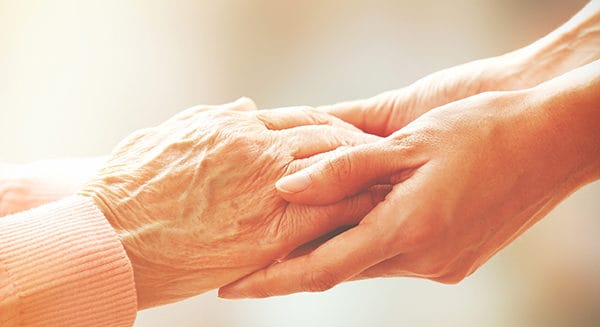Incontinence, the loss of control over one’s bladder or bowel, can affect people of all ages and can be distressing for anyone but older people are particularly affected. Indeed, continence issues can affect a person’s life to such an extent that it impacts on every area of day to day life, preventing a person from leaving the house, for example. The fear of having an ‘accident’ away from home is a very real one.
If this is an issue which affects your client then you as an in-home carer need to know how best to handle the problem in a way which doesn’t compromise your client’s dignity.
Causes and symptoms of incontinence
Urinary incontinence is the most common form and there is more than one variant, the most common being stress incontinence; when a laugh or a cough causes a leakage. Urge incontinence is due to a sudden extreme need to urinate while total incontinence means the bladder is unable to store urine at all.
Bowel incontinence follows the same pattern as urinary incontinence with the addition that it is sometimes difficult to control wind, or flatulence.
Incontinence is caused in many cases by the weakening of pelvic floor or bowel muscles, which can happen naturally with ageing. Changes in nerve control, overactive bladder or chronic diarrhoea can contribute to the problem and in men an enlarged prostate can trigger urinary incontinence.
Symptoms can be different from person to person and while some are able to put up with what they see as a normal part of getting older, some can become extremely distressed and depressed by the inability to control their bodily functions. Either way, the issue needs careful and sympathetic handling by those providing home care services and there are things you can do to help the client cope.
What can the carer do to help with continence issues?
Seeking medical advice could be helpful especially if the problem has arisen suddenly or has become worse. It could help to arrange an appointment with the client’s GP to find out what’s causing the incontinence and whether there are any medical treatments or other practical advice available.
In the meantime, a carer should investigate other ways to help and this includes taking advice on what kind of sanitary products are suitable. Elderly people become upset when clothing, bedding and seat covers become soiled, so these need frequent and thorough washing on high temperatures where possible. This should be done without complaint or comment as often as is necessary.
Personal hygiene is paramount so the client’s washing and bathing routine should be strictly adhered to. Wearable products such as washable, re-usable (or disposable) pads or pants are available to buy in supermarkets and pharmacies but always seek advice from a healthcare professional on whether they are suitable for long term use. For men with urinary incontinence there are products which fit over the penis and collect urine in a bag strapped to the leg.
Before buying any products privately contact the local NHS continence clinic to find out if the client is eligible for free incontinence products.

